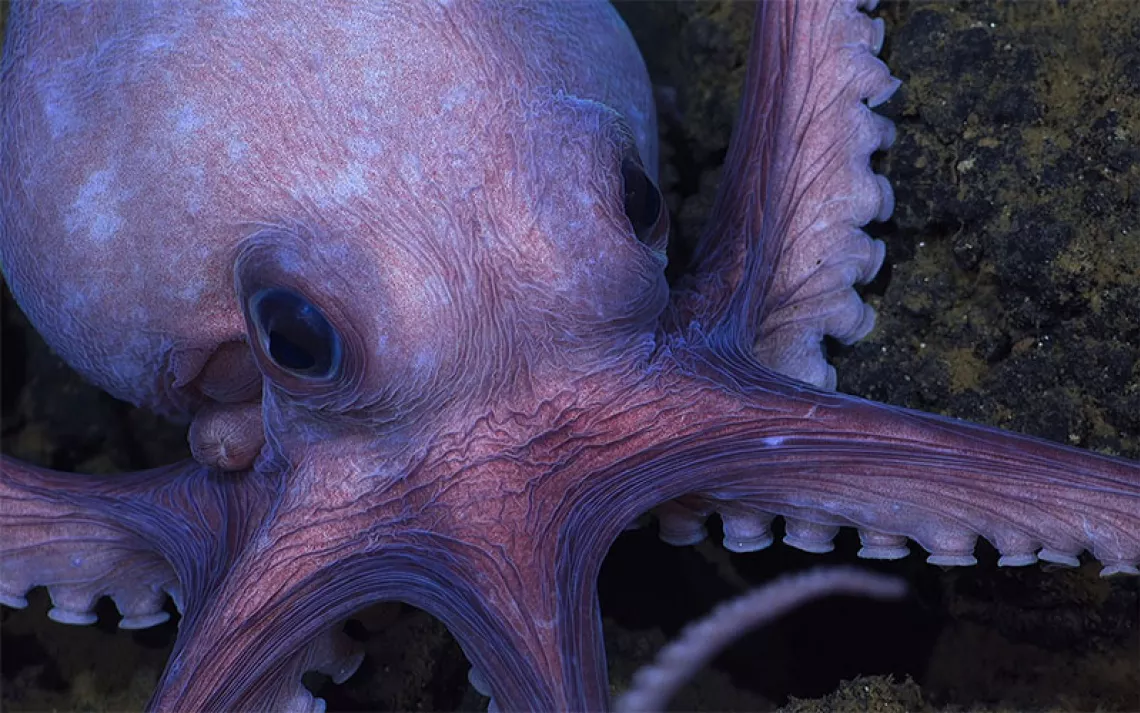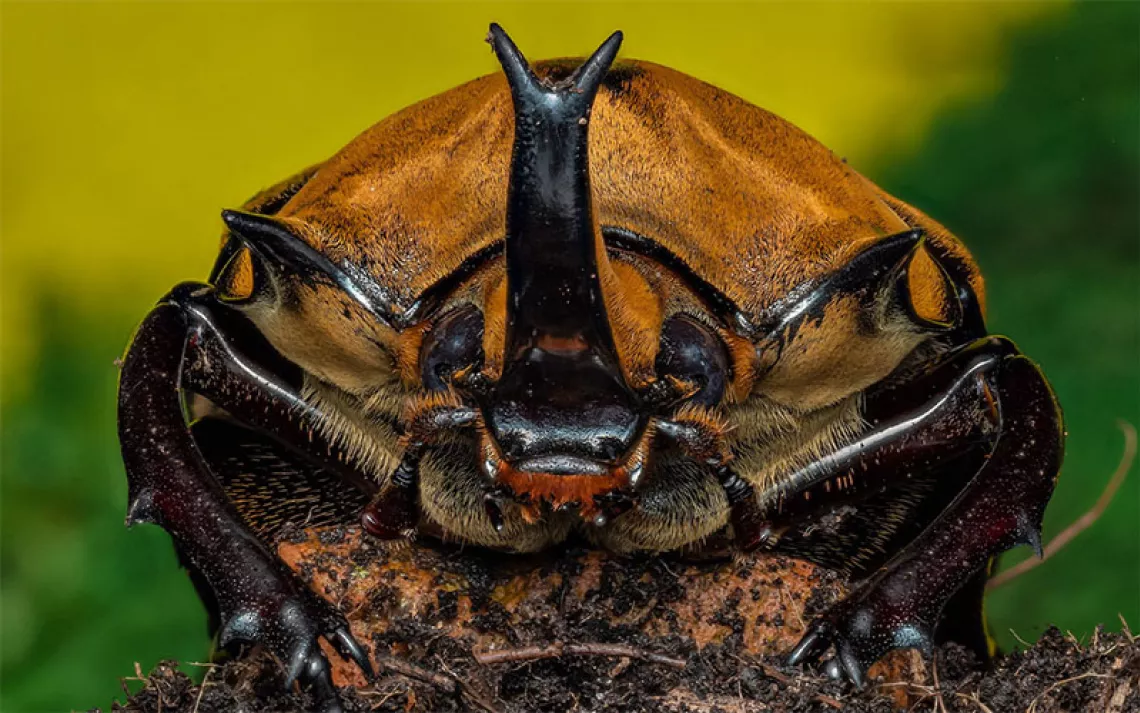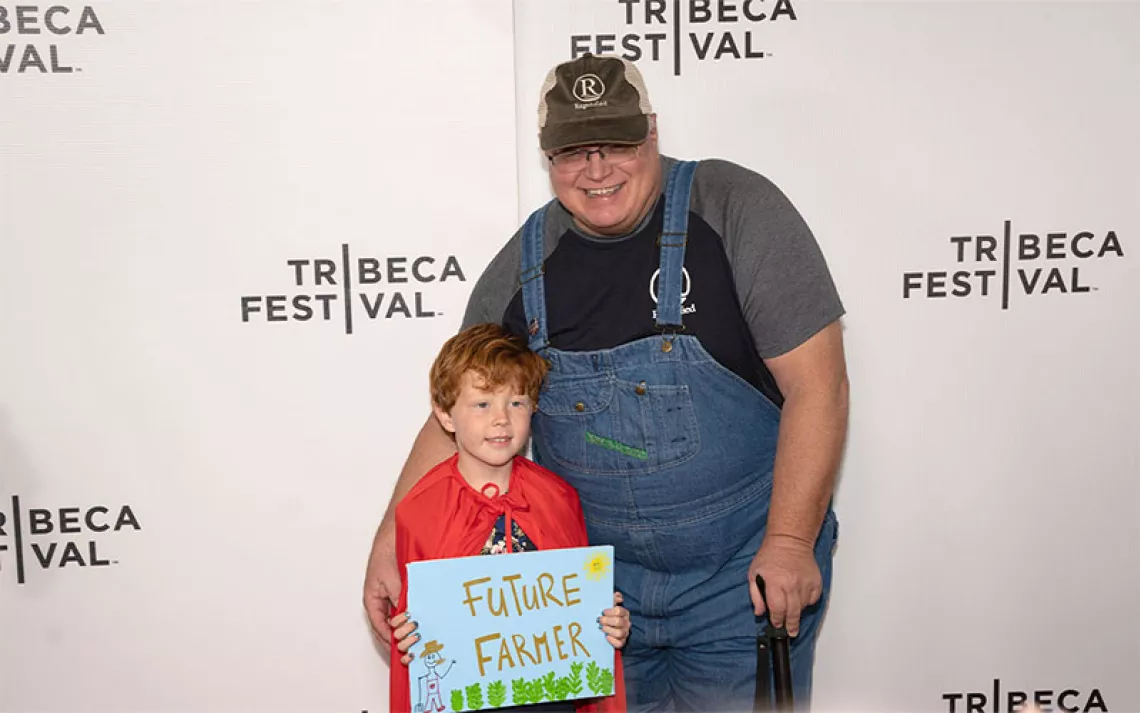Documentary Pits Oil and Gas Industries Against Spent Kitchen Grease
“Hot Grease” explores a greener energy future—one gallon of biodiesel at a time
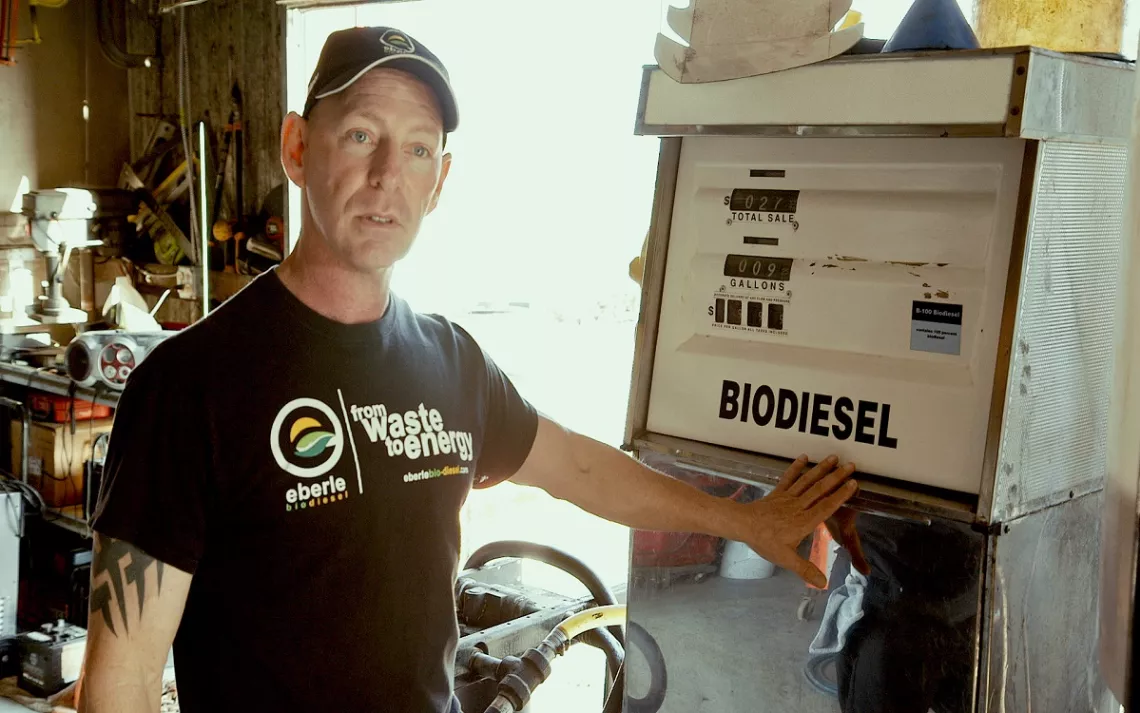
Jim Eberle in his biodiesel factory in Houston, Texas. | Photo courtesy of Discovery
Armed with 100 years’ worth of support from the federal government in the form of tax incentives and subsidies, the oil and gas industries are quite the force to be reckoned with. The 10-year-old biodiesel industry, however, is up to the challenge. Made from 100 percent recycled cooking grease, biodiesel is a form of green energy that can reduce carbon emissions by 85 percent compared with petroleum fuel. That’s the equivalent of removing more than 19 million cars from our highways. Although biodiesel has obvious environmental and health benefits—as well as several big-name champions from both sides of the aisle, including U.S. Senator Al Franken (D-MN) and U.S. Representative Kristi Noem (R-SD)—the industry struggles to compete with oil and gas. And a new documentary, airing tonight on the Discovery Channel, illustrates that struggle.
Hot Grease is a classic underdog film—think Rudy or The Mighty Ducks. The documentary brings viewers to the streets of the energy capital of the world: Houston, Texas, where they meet the underdogs trying to make it in the biodiesel industry (and triumph over the “grease thefts” trying to illegally profit from used fryer oil). Jim Eberle, a self-starting entrepreneur and inventor, taught himself how to make biodiesel by collecting used restaurant grease from customers at his car wash. He eventually used all that grease to build a full-fledged biodiesel business. When the price of biodiesel decreased, Eberle was forced to find new ways to use his hot grease—and ultimately discovered that it could replace petroleum in many products, such as wood stain. At one point in the film, Eberle is moved to tears, sharing, “We’re going to make a difference, one gallon at a time.”
Hot Grease sets out to prove that biodiesel has the potential to improve our economy and our planet more than we ever knew possible. With intimately greasy visuals, this documentary demonstrates how we can use this seemingly worthless raw material to fuel our planes, trains, and automobiles. And directors Sam Wainwright Douglas, Paul Lovelace, and Jessica Wolfson don’t tiptoe around the topic of climate change. In fact, the film’s opening line comes from the Sierra Club’s deputy legislative director for transportation, Andrew Linhardt: “Climate change is the most important thing that we’re facing right now, as a planet and as humankind.” Sprawling highways filled with vehicles inching along in bumper-to-bumper traffic flash across the screen as Linhardt explains that transportation is now the United States’ largest source of carbon emissions.
In 2007, the Renewable Fuel Standard (RFS) created the first real marketplace for biodiesel in its attempt to curtail America’s growing dependence on foreign countries for oil to fuel the transportation sector. This federal regulation required oil refineries to blend biodiesel into their petroleum-based diesel, which would in turn offset billions of gallons of crude oil. Hot Grease premiers the same month that the Trump administration–backed EPA plans to cut biodiesel blending requirements.
Sierra spoke with co-director Jessica Wolfson about why viewers should root for the industry that turns used cooking grease into a renewable fuel source.
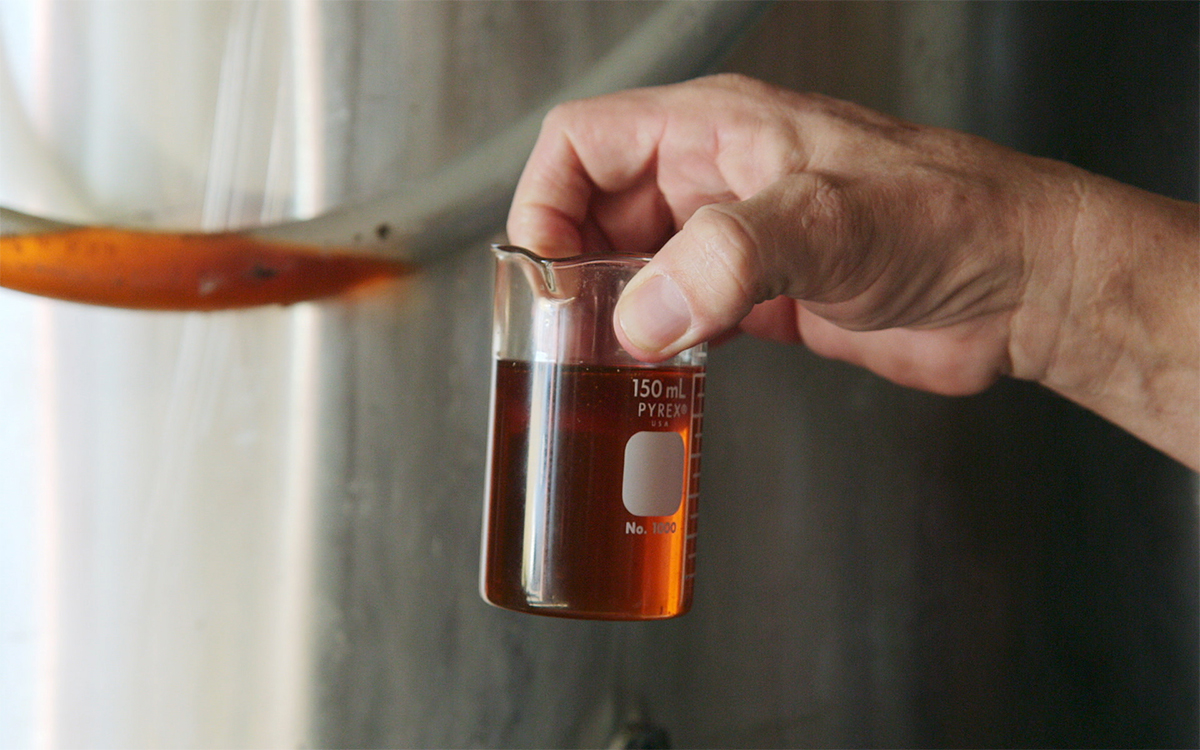
Photo courtesy of Discovery
Sierra: When you started making this film, did you have a specific target audience in mind?
Jessica Wolfson: When we first brought this project to Discovery Channel, it was based on an article in the New Yorker that came out in 2015, also entitled “Hot Grease.” That article really focused on the grease theft that you see in the film, and how grease theft was elevated when the price of grease was raised, because of biodiesel. But Discovery asked if we could branch out to make it a wider film about the biodiesel industry. Now that we were making a film for a television audience, and not a festival audience, we felt like we needed to explain concepts in a very clear way. It was helpful because biodiesel is a pretty complicated subject. The main audience we were looking at were people who are interested in biodiesel or people who don’t know anything about biodiesel and could learn something about it.
What was that process of re-angling the film like?
I think it actually ended up being a much better film because we broadened it out. I think that [original] angle would have been really interesting, but I don’t know if it would have sustained an entire documentary film. I think there were a lot of interesting things happening in the theft world, but in order to make an audience really understand that, we had to include more information about biodiesel itself. The transition was not that challenging for us. We were able to meet a lot more interesting characters by broadening it and learning about people in the industry—rather than just the people on the ground stealing grease.
Could you talk about your initial interest in this topic and how that blossomed?
Initially, I had heard of biodiesel and I knew it was good for the environment. I had heard about Willie Nelson opening a biodiesel station in Texas. I knew that he and Neil Young and Pearl Jam all use it in their tour buses, that it was great for the environment, and that people could make it out of french fry grease. After that, I didn’t know anything else. So it was a real learning curve. Plus, I don’t own a car because I live in New York City. I’m making a film about something that I don’t do often and cannot relate to on a daily basis. There was a lot of research and a lot of questions. Making biodiesel is both simple and incredibly complex at the same time. We read a lot of articles, we read a ton of books on renewable energy and big oil, and really got to understand what the culture looks like. Talking to our subjects and using our subjects as resources was also really helpful.
How did you decide how to approach climate change? Especially now, in the current political climate, when its existence is being denied by so many in power?
Paul, Sam, and I wholeheartedly agree that climate change is a very serious issue and needs to be addressed. Anyone who says it doesn’t is delusional, in my mind, or has some other agenda. It needs to be part of the conversation. Biodiesel is part of that conversation. Biodiesel can reduce carbon emissions by 85 percent, and biodiesel coming from cooking oil is 100 percent recycled. If we’re looking at biodiesel as a viable and important option in our fuel supply, it should be tied to climate change. It is tied to climate change. I think it’s completely outrageous that the Trump administration and the EPA and Scott Pruitt don’t think it’s a serious issue.
Biodiesel is very important because it’s a green energy—it creates jobs—but also because it’s good for the environment. That was really the driving motivation for us in making this film. People are not aware of its possibilities and potential. My hope is that an audience sees this and they’re able to say, “Oh my god, I didn’t even realize that biodiesel could do so much!” And then maybe they call Amazon and say, “I’m not going to buy anything else until you start using biodiesel in your truck fleet”—that’s an action that makes a difference. And if they call their senator and say that the renewable fuel standard is an incredibly important thing—that we need to support and encourage and increase it—then that will make a real difference. Especially now, with the U.S. pulling out of the Paris accord and all of these things happening in the world, I think it’s terrifying. And this is something that could actually help. So, we need to get it out there.
As you were making this film, the 2016 election happened—did this alter the course of your filmmaking?
As you see in the film as it plays out in real time, people were really hopeful and positive that environmental initiatives were going to keep their course and get more support with Hillary Clinton in the White House. And then Trump got elected, and as we say, we don’t know what he’s going to do. We do know that he has stated that he doesn’t believe in climate change and that he’s really for coal. The state of the biodiesel industry, and of the renewable energy industry, are going to be in jeopardy if they don’t get the government support that they need. And they’re not going to be able to survive [if they don’t]. I think it’s terrifying that he and his administration would decide to make these choices. I hope that people are going to be able to fight against it.
When Scott Pruitt made that statement about the renewable fuel standard, Senators Chuck Grassley and Al Franken and the biodiesel community really got behind this and fought back. At this point, I think [Pruitt] has pulled back a lot of those [initial] harsh statements, fortunately, but that doesn’t mean he’s not going to do it again next year, or the year after that, or the year after that. Just because he rolled back his statements this year doesn’t mean that we’re safe. Just means we have to continue the fight harder. And the support is not going to be there. And the EPA, as an institution, will no longer be an ally. That’s going to be really problematic going forward. It certainly creates a lot of drama in the film. It creates a lot of drama in the world. It’s not good drama. It’s not the drama I want to wake up to every morning. We’ll see. Fingers crossed.
 The Magazine of The Sierra Club
The Magazine of The Sierra Club
